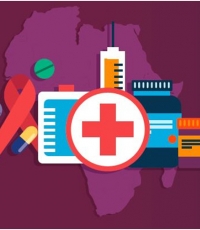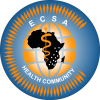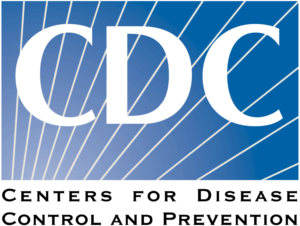
TB is among the top five causes of death in Sub-Saharan Africa. Responding to the burden of TB requires a regional multi-sectorial approach that focuses on addressing determinants of the spread of TB and tackling health system constraints that inhibit a rapid TB response. East Central and Southern Africa Health Community (ECSA-HC) organized a workshop on the margins of the 48th World Union Conference on Lung Health in Guadalajara, Mexico to leverage this global platform to discuss the mechanisms for strengthening health systems to support management and control of the burden of TB in East, Central and Southern Africa. The workshop took place on 11 October 2017.
The workshop attracted 41 participants who were engaged in discussions guided by five themes focusing on rebuilding current laboratory capacity to contribute to controlling TB and other infectious diseases, and embracing innovative regional approaches to cross-border management of TB and other infectious diseases, as well as highlighting the value of harmonized guidelines and strategies for TB and occupational health in the region.
The workshop was officially opened by Dr Benedita from the Ministry of Health of Mozambique. Speaking during the event, Dr Benedita expressed appreciation of the commitment to regional harmonized approaches to tackle the burden of TB as evidenced by the implementation of the World Bank (WB) funded Southern African Tuberculosis and Health Systems Support (SATBHSS) project in Lesotho, Malawi, Mozambique and Zambia.
“The four respective governments have shown commitment to combat the TB Burden in the region through this regional approach”, Dr Benedita said.
She appreciated the support through the World Bank and the regional coordination provided by ECSAA-HC and NEPAD Agency in the implementation of the SATBHSS project. She noted that countries were at different levels of implementation with challenges being addressed at different levels. Each of the 4 project countries presented updates on efforts towards establishment of Centers of Excellence (CoE) distributed as follows; (i) Community based TB Management by use of digital mobile X-rays (Lesotho); (ii) Community TB care & integrated disease surveillance (Malawi); (iii) MDR-TB & childhood TB management (Mozambique) and (iv) Occupational health and safety (Zambia).
Dr Bachir of Mozambique indicated that their CoE seeks to generate best practices in surveillance, diagnostic, treatment, prevention and research related to PMDT in Mozambique and provide technical support and facilitate collaboration and cross learning about DR-TB in the region while Dr Marealle of Lesotho indicated their CoE will improve case notification through community based approaches in TB management in the underserved and hard to reach areas. Dr Mpunga shared with the participants that Malawi is focusing on strengthening community TB, occupational health services and integrated disease surveillance while Mr Morton of Zambia indicated their CoE will improve coverage and quality of key TB control and occupational lung disease services in targeted geographic areas of the participating countries.
During the workshop, presentations were made by the Global Laboratory Initiative (GLI) on their laboratory system strengthening initiatives the “GLI Stepwise Process towards TB Laboratory Accreditation." In addition, GLI informed the participants on the “GLI Guide to TB Specimen Referral Systems and Integrated Networks” launched at the conference. During the session, ECSA-HC representatives, Dr Talkmore Maruta, Senior Laboratory Specialist and Dr Ivandra Chirime, Senior TB Specialist provided an update on Laboratory system strengthening activities and implementation of Harmonized TB Management Guidelines and Cross-border Referrals in the Mining Sector in the Southern African Development Community (SADC) Region.
Dr Martin Matu, Project Coordinator at ECSA-HC, Dr Willy Were, Epidemiologist and Dr Benedict Moshi, M&E Specialist jointly presented on the East Africa Public Health Laboratory Network efforts in strengthening Laboratories to support TB and other infectious diseases in East Africa.
The three hour long workshop also discussed current research efforts to inform management and control of the TB burden and utilize findings from training needs assessments for the control and management of the TB burden in the region.






